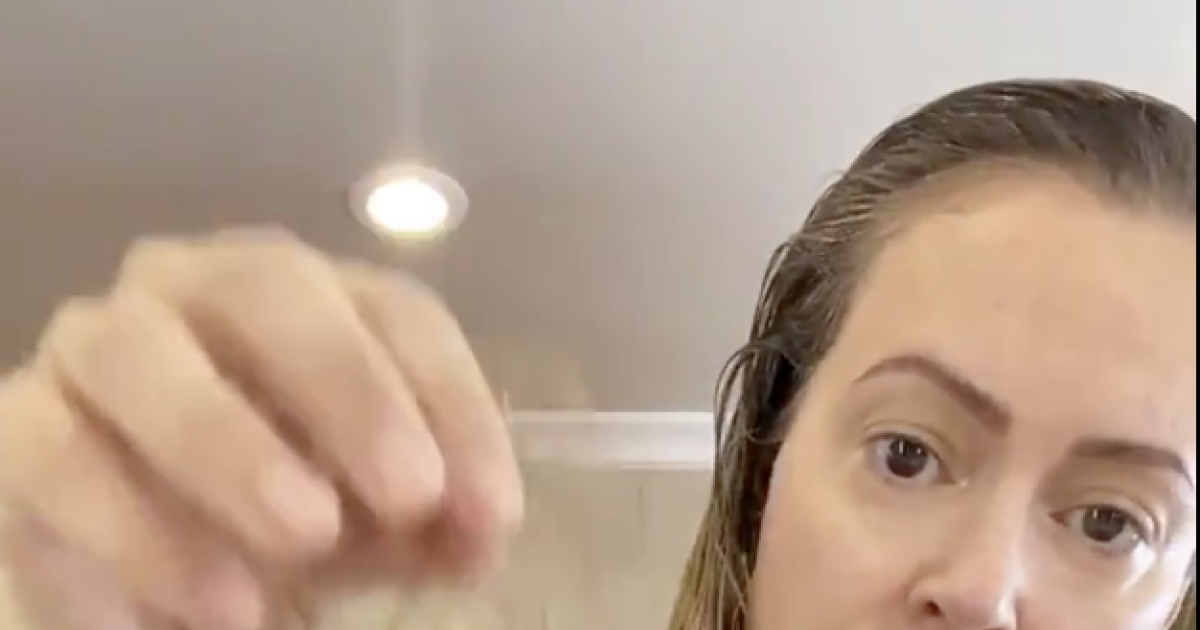Actress Alyssa Milano has opened up about her battle with COVID-19, saying she is now experiencing hair loss as a result of the coronavirus. In a video posted to Twitter on Sunday, Milano brushed through her hair to show it falling out, in clumps.
“Thought I’d show you what #Covid19 does to your hair. Please take this seriously,” Milano wrote in the caption.
She shared the video to spread a simple message. “Wear a damn mask,” she said.
Thought I’d show you what #Covid19 does to your hair. Please take this seriously. #WearADamnMask #LongHauler pic.twitter.com/H0wCmzYswV
— Alyssa Milano (@Alyssa_Milano) August 9, 2020
The actress is not the only person to report hair loss as a result of COVID-19. While it is not a symptom on the CDC’s official list, a recent survey found about 26% of people with long-term coronavirus symptoms said they experienced hair loss.
The survey was conducted by Survivor Corps, a group that provides resources to coronavirus survivors. The group asked more than 1,500 patients to report what symptoms they had, including those not on the CDC list like weight gain, clogged ears and hair loss.
The researchers found that “long haulers’ COVID-19 symptoms are far more numerous than what is currently listed on the CDC’s website,” the study reads. Over 400 respondents said they experienced hair loss.
Many people in the Survivor Corps Facebook group have opened up about their hair loss following their battles COVID-19, asking others for advice. In July, one woman posted that ever since she was diagnosed with COVID-19 in March, her hair had been falling out in “massive clumps!”
Dr. Shilpi Khetarpal, a dermatologist at Cleveland Clinic, said there have been an increased number of reports of hair loss from COVID-19 patients. According to Cleveland Clinic, a phenomenon called telogen effluvium is to blame. It is a form of non-scarring hair loss that results from an abnormal shift in follicular cycling.
There’s generally a two- to three-month lag between a stressful event and the onset of hair loss, which is “why we’re seeing these patients now, several weeks after COVID-19 symptoms resolve,” Khetarpal said.
According to a previous Instagram post, Milano began feeling coronavirus symptoms sometime in March. Last week, she shared a photo of herself taken on April 2, after she was sick for two weeks. “I had never been this kind of sick. Everything hurt. Loss of smell. It felt like an elephant was sitting on my chest. I couldn’t breathe. I couldn’t keep food in me. I lost 9 pounds in 2 weeks. I was confused. Low grade fever. And the headaches were horrible. I basically had every Covid symptom,” she wrote in the post.
Milano said that after first testing negative for coronavirus and antibodies, she continued to have symptoms for four months – “like, vertigo, stomach abnormalities, irregular periods, heart palpitations, shortness of breath, zero short term memory, and general malaise” – so she took another antibody test. It came back positive, meaning she did in fact have COVID-19.
“I just want you to be aware that our testing system is flawed and we don’t know the real numbers. I also want you to know, this illness is not a hoax. I thought I was dying. It felt like I was dying,” she wrote in the Instagram caption. “I will be donating my plasma with hopes that I might save a life. Please take care of yourselves. Please wash your hands and wear a mask and social distance. I don’t want anyone to feel the way I felt.”
